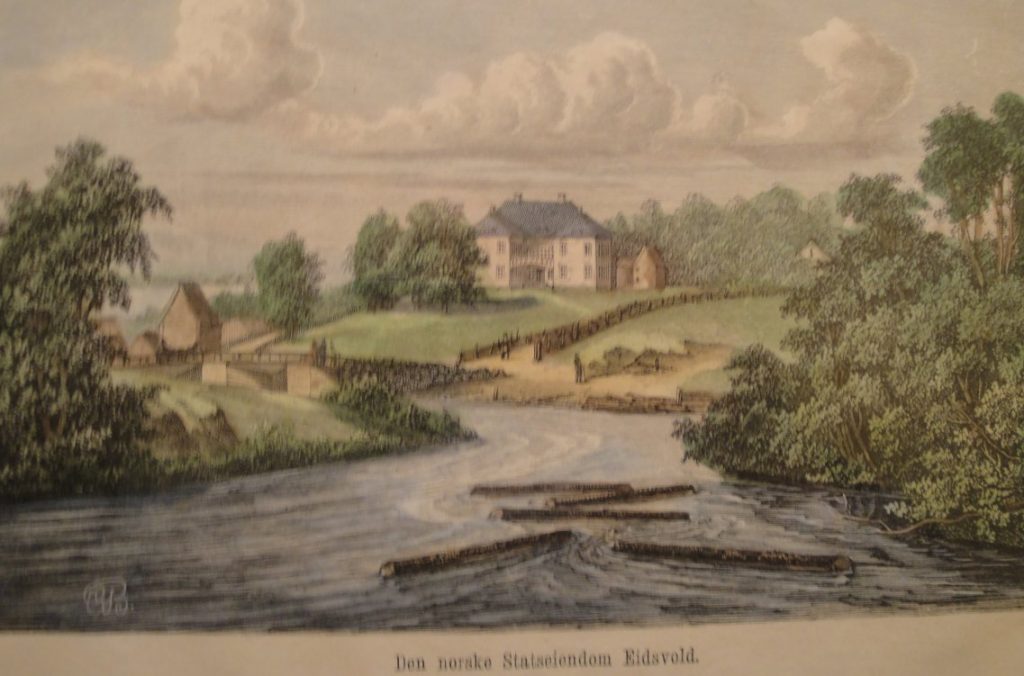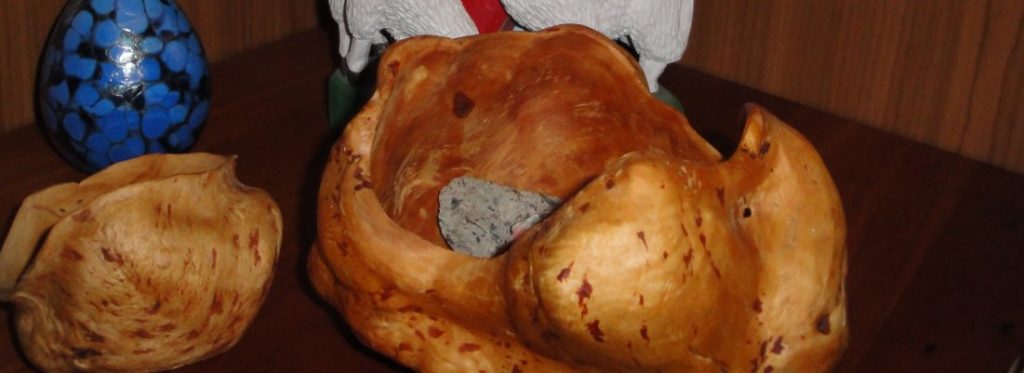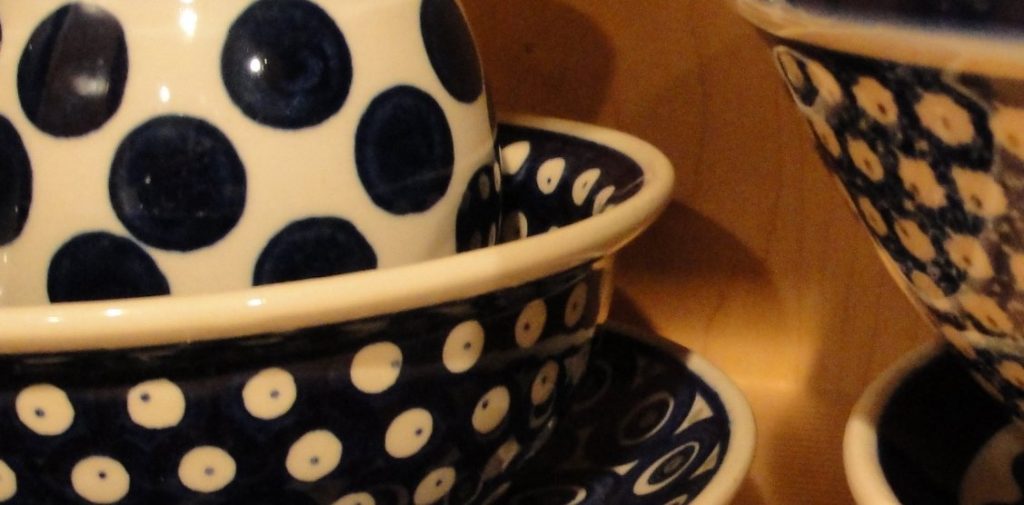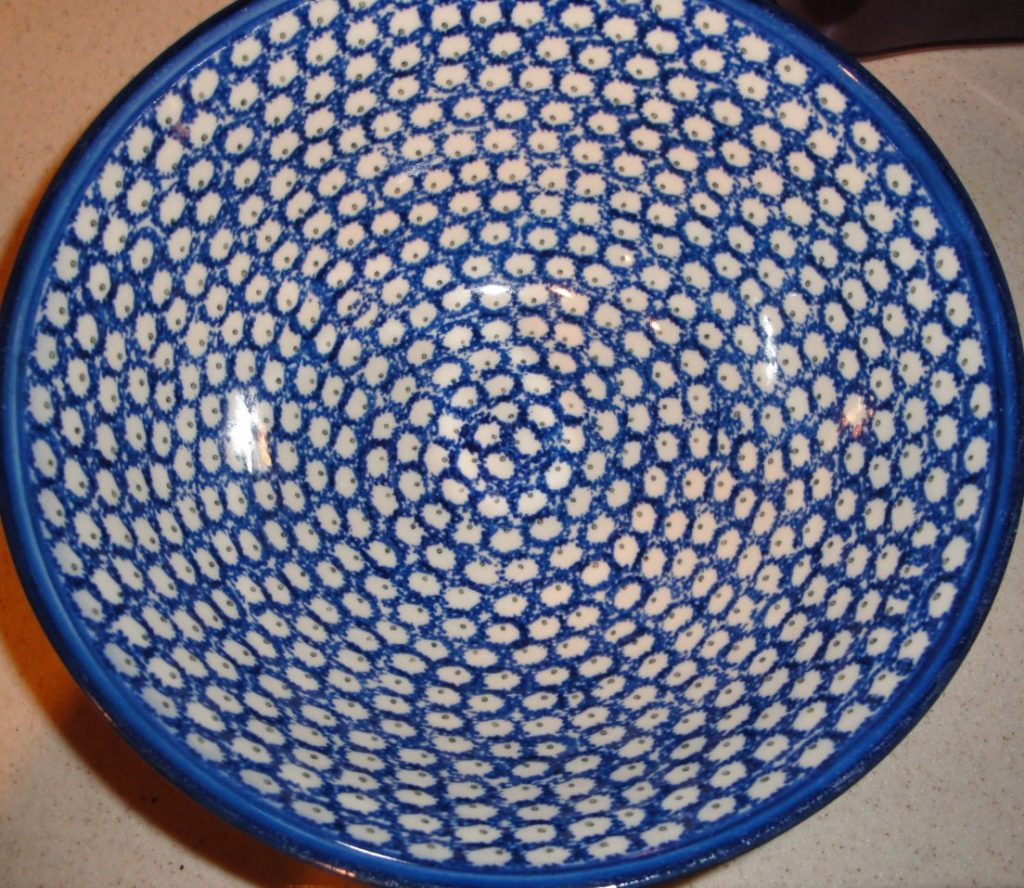
I don’t acquire as much collectible stuff as some people. I was thinking about how I have almost nothing left from my posts in Brazil, Norway or Poland. Then I started to think that I don’t have much from anyplace else in general.

It is not that I just don’t keep things. I keep things that I regularly use. Chrissy gives me a hard time that I rarely buy new clothes. I really see the need to replace something until it wears out. Pictures of me from years ago show this. Once when traveling to Germany, the border guard questioned my passport photo. Since I got that passport, I had grown older, grown a beard and cut my hair much shorter. He looked up again. “Okay, same eyes and same necktie,” he laughed.

I don’t think I have anything left over from Brazil. That was a long time and several moves ago. We have a few things from Norway. We have a cheese cutter, a print of the building where the Norwegian Constitution was signed and a wooden bowl made by my colleague Leif Somerseth, who made them from burls on some birch trees at his mountain cabin. (The wooden bowl is pictured above. I tossed in my two pieces of the Berlin Wall and that is where they have resided ever since.) We were in Poland twice can more recently, so we have a little more from there. I have a framed antique map of Poland, a reproduction sword, some prints and some wood carvings.

But the most useful thing we have is a set of Boleslawiec ceramics. We should have bought more of it. They were practically giving this stuff away when we first got to Poland. You could get a whole set for around $10. Now a single plate costs that much or more. Unfortunately, it is a wasting resource, i.e. pieces are breaking and one day they will all be gone. I don’t think we should just save or preserve them. It was made to be used and use it we do. In many ways, the experience with the thing is more important than the thing itself.
I never understood those guys who collect things unopened in their original packaging. IMO, the value comes from its use and using it adds the personal value. The things I still have from Poland or Norway are not things I just bought. They are things people gave to me or things that came from some experience. Their value doesn’t come from the thing itself, but from associations and experience surrounding it. Things you keep should have a back story, one of your own, not just a vicarious one or some ersatz tale created by a salesman or marketing department.
You probably don’t need too much stuff in general and keeping in mind the real back story helps slow the mindless accumulation.
